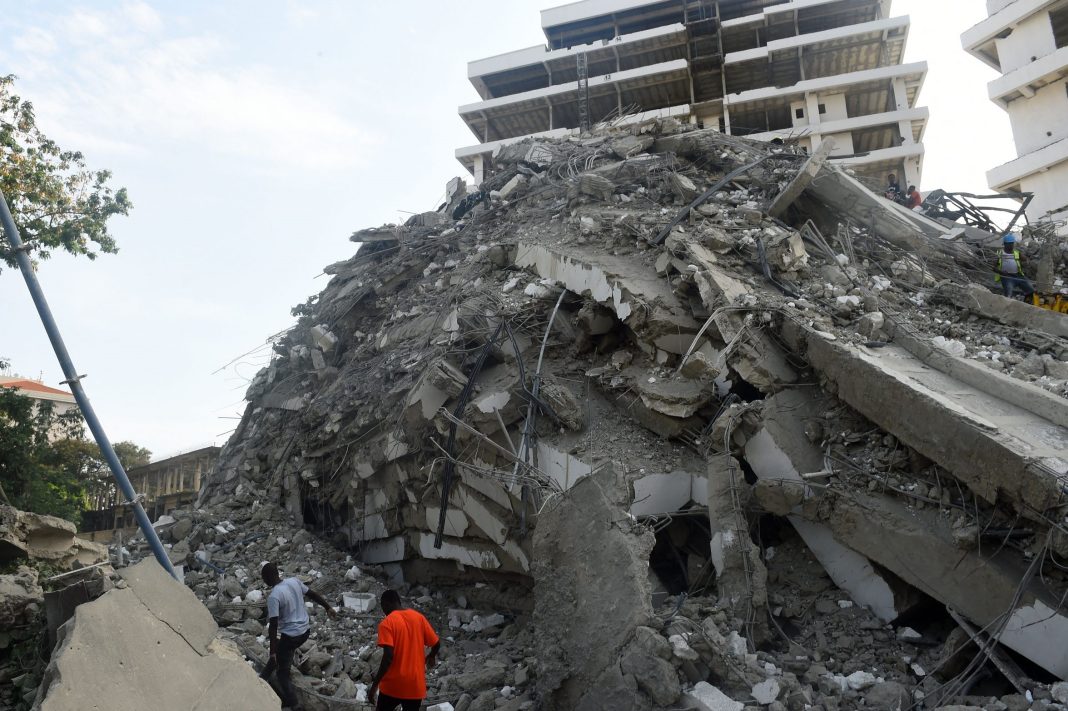According to a communique released by the Minister of Housing and Urban Development, Ahmed Musa Dangiwa, during the 12th meeting of the National Council of Lands, Housing and Urban Development, a distressing total of 553 buildings in Nigeria have collapsed over the past five decades up until April 2023.
These tragic events have resulted in the loss of lives and several other injuries. The communique was issued at the conclusion of the meeting held in Kaduna.
The communique noted the “purpose of the Council Meeting is for relevant stakeholders in the Housing Sector from the thirty-six (36) States of the Federation and the Federal Capital Territory to deliberate and adopt policy measures toward addressing challenges associated with harnessing local and international credit schemes as a panacea for affordable housing delivery under the Renewed Hope Agenda of President Bola Ahmed Tinubu.
It is also an avenue for accelerated housing development and eventual job creation, social inclusion, and economic development.
According to the minister, “The Meeting reviewed a total number of Sixty-Two (62) Memoranda submitted by the stakeholders of which Eighteen (18) were actionable while Thirty-Two (32) were informative and Twelve (12) were stepped down.
“In addition to assess the progress of Implementation of the key decisions, reached at the 11th Meeting of the Council on Lands, Housing and Urban Development, held on 27th October 2022 in Sokoto.
Thus, the communique underscores the urgent necessity for compliance with the implementation of comprehensive insurance for our public buildings and buildings under construction.
According to the communique, there is the need to take the insurance of buildings very seriously particularly, the mandatory public buildings and buildings under construction insurance policies.
The communique enlightened that the Insurance Act 2003, section 65 states that every public building shall be insured with a registered insurer against the hazards of collapse, fire, earthquake, storm, and flood.
It listed public buildings to include all business and office premises (Government, Corporate, Private), Hotels, Guest Houses, Hostels and Residential Estates, All Hospitals, Health Centers and clinics (Public and private), Markets and Plazas, etc.
It also stated that Section 64 of the Insurance Act 2003 provides for insurance coverage on uncompleted buildings such as construction risks, death or injury, and property damage.
It concluded the benefits of the Insurance coverage include financial compensation to the families of insured citizens who may become victims of a disaster, employment creation, provision of grants and Fire-Fighting Equipment for the Federal and States Fire Services by NAICOM from the Fire Fund as stipulated in the Insurance Act 2003 and reduction in the Federal and State Government expenditure in the event of disaster and thanked delegates for listening.
The communique also identified the challenges of mortgages in the country, such as cumbersome registration processes, high costs, and low mortgage literacy.
To this end, it called for the introduction of Model Mortgage & Foreclosure Law (MMFL), which aims to address these challenges and promote effective mortgage administration.
“The MMFL establishes a Mortgage Registry, empowers banks to register mortgages, and shortens the perfection period.
” It also introduced innovations such as deemed registration and Alternative Dispute Resolution. The presentation highlighted the benefits of the MMFL, including decongestion of courts, speedy dispute resolution, and reduction of the housing deficit. It emphasised the role of key stakeholders, such as Governors, in implementing the provisions of the Model Law.
The communique said Gombe will host the 13th meeting of the Council.
Source: Nigerian Tribune

































